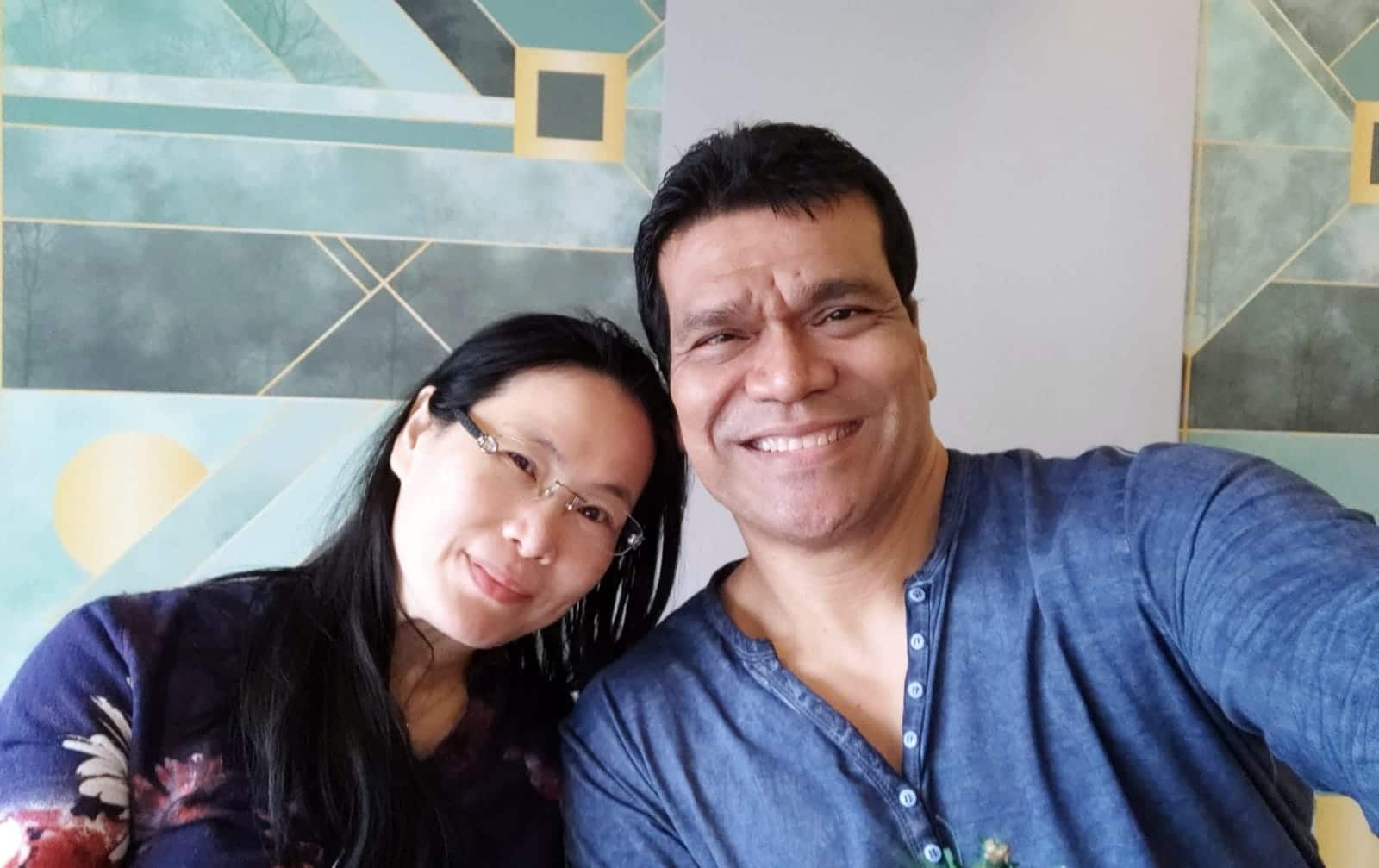Dreaming of the Amazon: Bishop Raphael Samuel on his 23 years in Bolivia
by Rachel Phua // September 1, 2018, 11:25 am
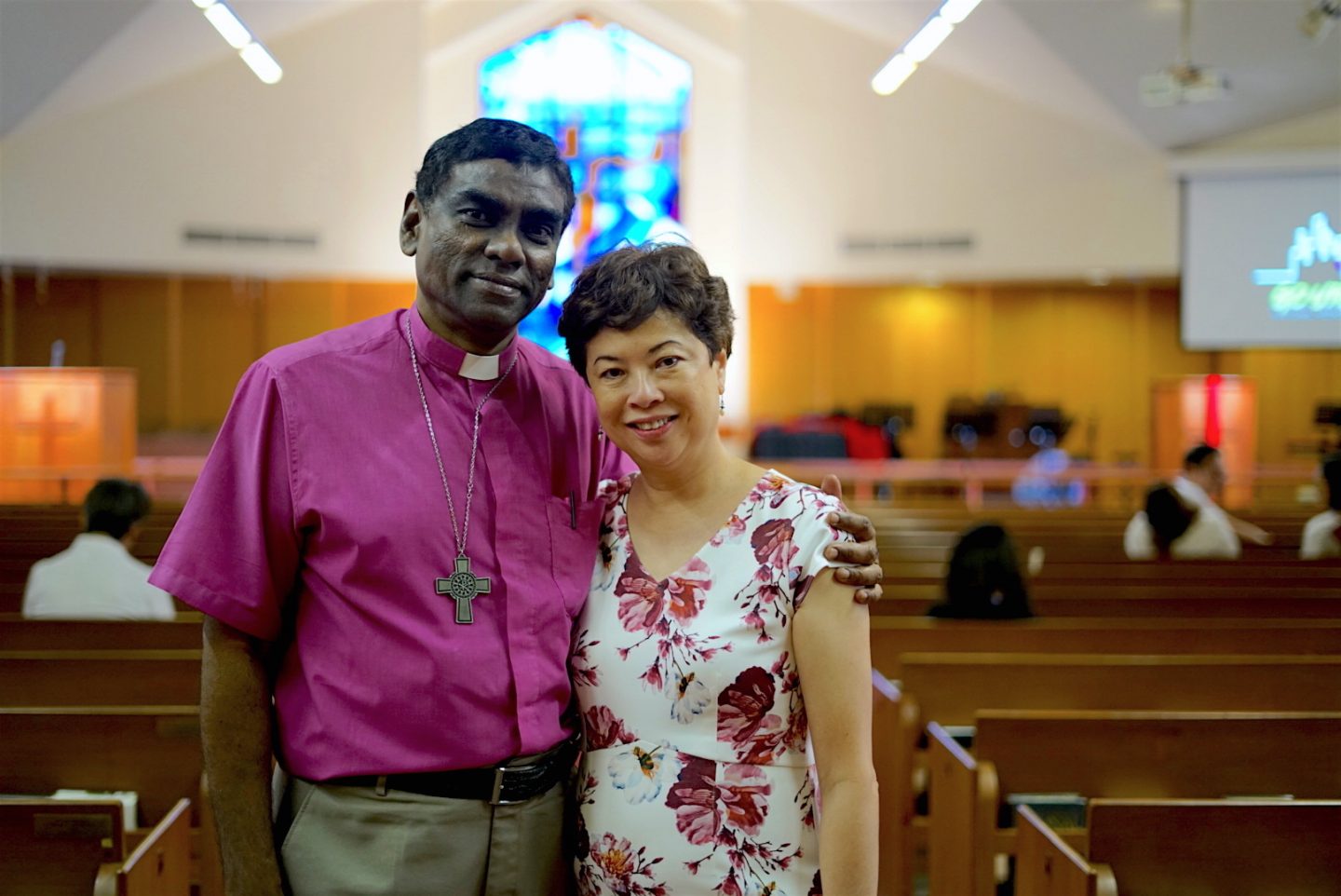
Bishop Raphael Samuel and wife, Michelle Lee, were honoured at this year's GoForth missions conference for their work in Bolivia. Photo by Rachel Phua.
“We miss the food!!!!!!!!” exclaimed Bishop Raphael Samuel in an e-mail reply, followed by a list of specific dishes, ranging from char kway teow to mee rebus.
It’s the usual response from a Singaporean living abroad.
But Bishop Samuel’s life has been anything but typical.
The 61-year-old Singaporean is the current head of Bolivia’s Anglican Church, picking up the mantle five years ago. He is the first Asian missionary to lead an Anglican diocese in South America.
Bolivia beckons
Before his current appointment, Bishop Samuel and his wife, Michelle, spent the better part of the past two decades in the landlocked Latin American country, becoming the longest-serving missionaries in the Bolivian Anglican Church.
As a schoolboy, he was enthralled by stories of the Amazon rainforest. In school, he received two visions of missions.
The couple had originally planned to be there for only three years.
A calling this unexpected for a Singaporean helps when you are a young Tamil boy named Raphael.
People in Singapore had trouble pronouncing his name growing up, he recalled. Was it Rafee? Rafay? Why something so Spanish-sounding?
As a schoolboy, Bishop Samuel was enthralled by stories of the Amazon rainforest. It was the target of his musings, and he revelled in thoughts of jumping into rivers, or spotting a rare animal. He later dismissed it as a “silly adolescent dream”.
Yet, the fascination with Latin America did not end with his childhood.

Bishop Dr Moses Tay, who headed the Singapore Anglican Church from 1982 to 2000, was instrumental in sending Bishop Raphael Samuel to Bolivia. Photo by Rachel Phua.
After a six-year stint at the Singapore Navy, Bishop Samuel went to seminary in 1980, where he got to study the works of Latin American theologians.
As the son of a dad who was a nurse and a mum involved with social work among the elderly and prisoners, he was drawn to the elements of social justice in their ideas.
While in school, he received two visions that seemed to beckon him towards the mission field. One of them was of Jesus holding a globe, His hands covered in blood.
The other was blood flowing from Jesus’ feet while He stood on desert land. Once the blood touched the sand, it turned into a green pasture, water springing from the ground. A woman from church who had served in South Africa confirmed his visions.
But after graduation, duties as a father and a clergyman soon caught up with him, and the missionary call took a backseat.
Then one day in May 1991, a missionary working in Bolivia turned up during a clergy meeting at St Andrew’s Cathedral. His name was Reverend Greg Blaxland, and he shared about the needs in the country and made an appeal for help.
Reverend Blaxland’s words sent the young deacon’s pulse racing. It had been three years since his desire to serve in Latin America was first ignited when at a missions conference, Bishop Dr Moses Tay – then-head of the Singapore Anglican Church – mentioned the needs in places as far as South America in his closing benediction.
“At that point, I thought the time was right to take an act of faith,” Bishop Samuel said. He left the meeting excited to recount what he had heard.
A dangerous prayer
His parents were largely supportive – the main concern was the future of Elijah, his three-year-old son.
Bishop Dr Tay was also supportive, even though it was uncommon for a clergyman to take up permanent missionary stints. He invited Bishop Samuel to join him on a trip to Bolivia in October 1991, where he was going to establish ties for missions with the country’s Anglican Church.
“When I was a teenager, one night I made a very dangerous prayer: ‘Lord, I’ll go wherever you want me to go.'”
“By that time, clergymen didn’t dare to travel with me because I would drop them off as missionaries after they travelled with me,” said Bishop Dr Tay with a grin, adding that he had a reputation for sending Singaporeans abroad for long-term missions.
But Bishop Samuel was different, said Bishop Dr Tay. He was “very creative” and “thinks out of the ordinary”. He wanted to go.
The two-and-a-half-week adventure in La Paz and Santa Cruz convinced Bishop Samuel of his next move, in particular Santa Cruz.
While La Paz, the capital, was where there was an urgent need for missionaries, he felt called to the Bolivian lowlands. Ringing inside his head was the verse: “He makes me lie down in green pastures, he leads me beside quiet waters. ” (Psalm 23:2)
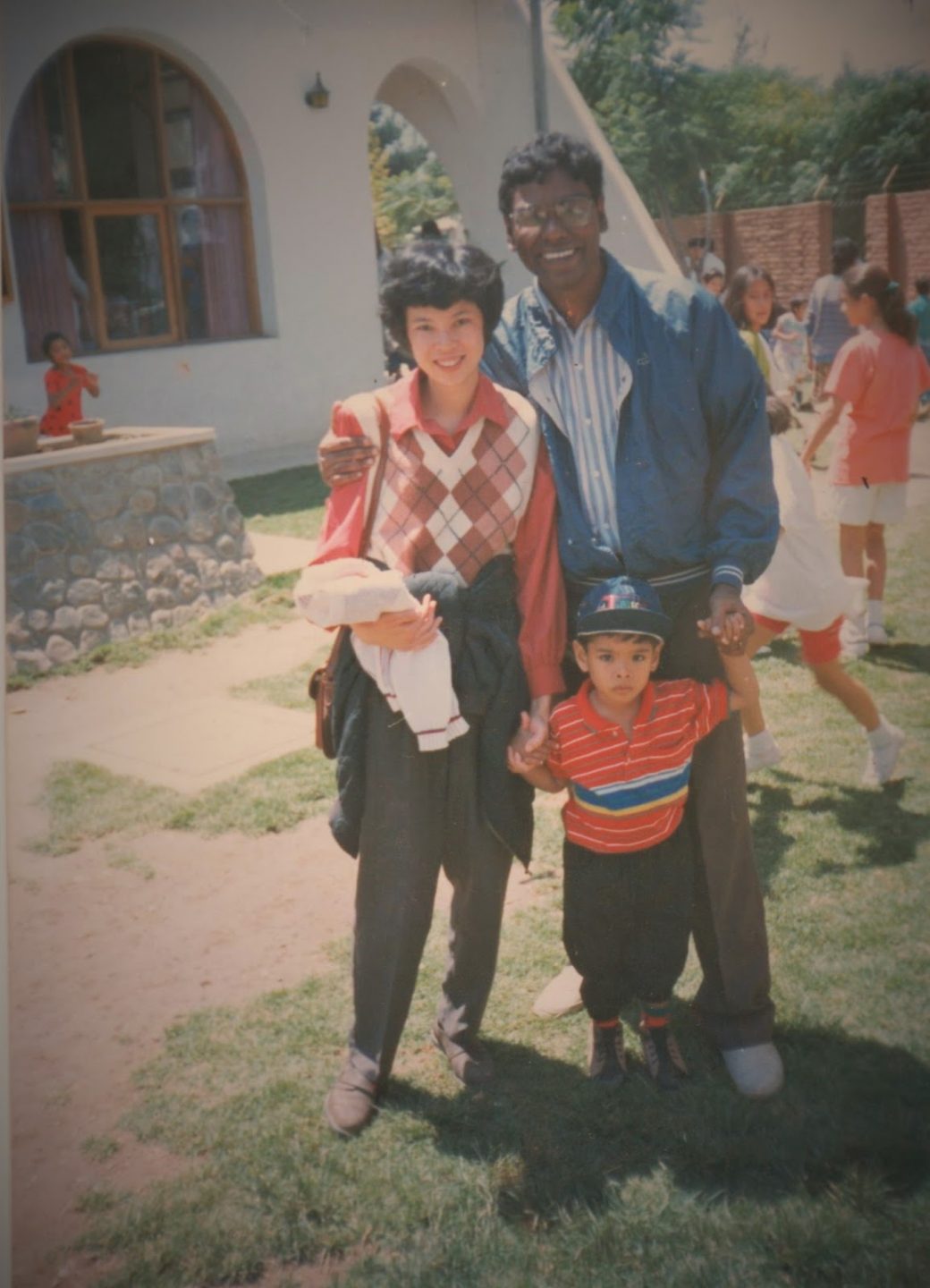
Bishop Samuel with his wife, Michelle, and son, Elijah, when they first arrived in Bolivia in 1993. They lived in Cochabamba at the beginning to attend Spanish language classes at the Maryknoll Language Institute.
Though she was apprehensive at first, Michelle was prepared to pack her bags after her husband came home and poured his heart out. She had been ready even before they got married.
“When I was a teenager, one night I made a very dangerous prayer: ‘Lord, I’ll go wherever you want me to go.’ After that I nicely forgot about it,” she said.
But God heard her the first time. When the moment came, He reminded her: “Fulfil your vows!”
Sweeping floors
The first few years in Bolivia were spent picking up the language and assimilating into the culture.
That was the most challenging period of their lives, said Bishop Samuel. He also went back to the duties of a parish worker – moving chairs, sweeping the floor, cleaning the sanctuary – as he was not managing a public ministry yet.
In spite of the language barrier, Bishop Samuel and Michelle felt more at home with the Bolivian rather than the English-speaking missionaries, he said, attributing it to culture.
“I had to learn to ‘major on relationships’ rather than getting caught up in planning programmes.”
There is an emphasis on family among the Bolivians, and “like Asians, once they get to know someone, they are very warm and welcoming”.
But while Singaporeans can be tight-lipped about their personal problems, Bolivians are open about their pain, Bishop Samuel said, as many come from broken families.
Divorce is a huge concern in the country. Bolivia also contends with poverty, with 39.5% of the population living below the national poverty line, according to the World Bank.
These issues informed Bishop Samuel’s ministry when he began to pastor a local church, and even now, as he runs the Anglican body. He focuses on counselling, inner healing and mentorship.
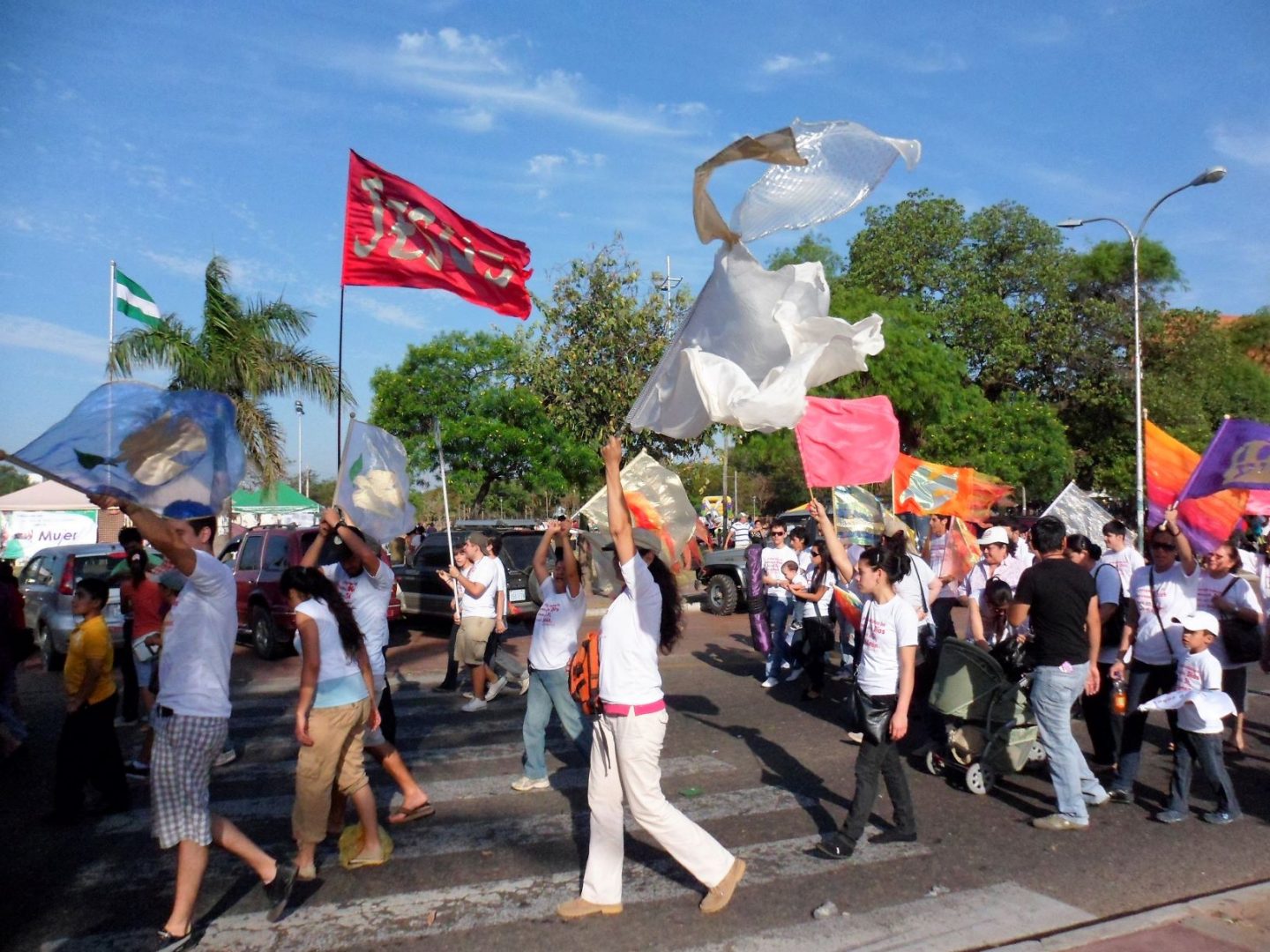
The church waving flags during an outdoor celebration. Photo courtesy of Michelle Lee.
He has had to learn to “major on relationships” rather than getting caught up in planning programmes and controlling their outcomes, Bishop Samuel said.
“They are not kiasu (a Hokkien term loosely translated as ‘afraid to miss out’) and they live in the moment because they have no resources, unlike Singaporeans. So they just enjoy what they have at hand.”
The Bolivians’ jovial and celebratory nature also lends itself to her work in worship and the creative arts, Michelle added. She trains teams in liturgical and prophetic dance, and oversees a ministry that designs its own flags and banners.
There is now a cottage ministry in her church as well, where they paint scarves with Bible verses and sell them overseas.
They’ve changed us
During their time in Bolivia, Bishop Samuel and Michelle saw how God was shaping them according to the words of Philippians 2:13: “For it is God who works in you to will and to act in order to fulfil His good purpose”.
“They’ve changed us more than we’ve changed them. God has taught us that we don’t have all the answers.”
“I think they’ve changed us more than we’ve changed them,” said Michelle. “God has taught us that we don’t have all the answers. We used to think that our ways are better than theirs, but they have their own solutions which oftentimes work better.”
She cited the example of assisting families in dire straits. As church leaders, Michelle and Bishop Samuel would try to solicit donations from the congregation. But then they saw how differently the locals tackled the situation, often in a heartwarming way.
The family would organise a lunch and cook, and the community would come and pay for the meal, she said.
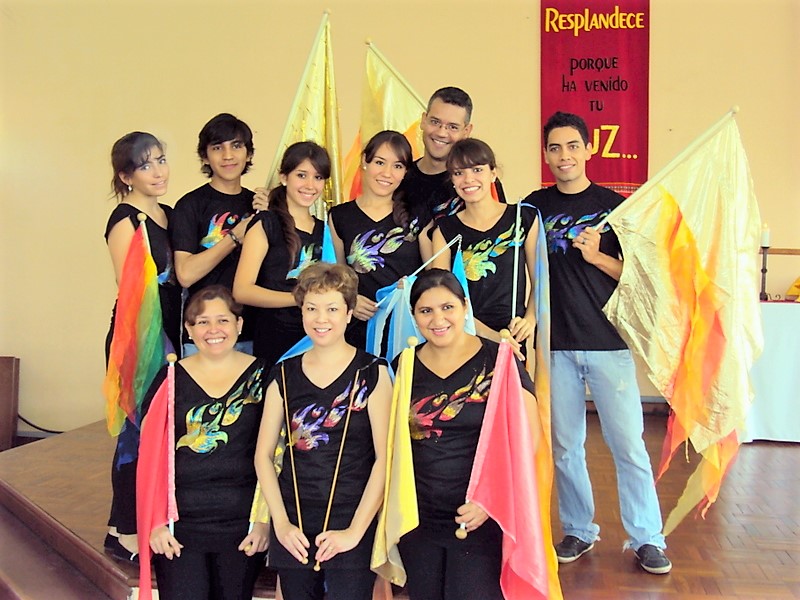
Michelle (centre bottom) with her church’s flag team. Photo courtesy of Michelle Lee.
Bolivians are also a forgiving bunch, said Bishop Samuel.
“You can have an argument with them but the next week when you talk to them, they’re your friends again,” he said. “I’ve become less inhibited and more confident in the way I treat people.”
The Singapore story
After more than 20 years in Bolivia, the couple say they are more appreciative of Singapore. Bishop Samuel feels the country is primed for cross-cultural work, especially on home ground.
“Singapore has always been a hub of sorts since the colonial period,” he said. “So I think it’s our destiny to include people of other races and cultures.
“We are even relating to people of other religions and races without knowing it. The other day I was at the MRT station, buying an EZ-link card from a Malay lady, and we struck up a conversation in English. And on my right were two people speaking in Mandarin – one from China and another from Singapore.
“What is faith if it is not doing something that is beyond human effort?” (Hebrews 11:1)
“Where can you find that sort of dynamics in the world?”
The Christian faith is another reason that multi-ethnic Singaporeans should open their doors and hearts to people who are unlike us, Bishop Samuel added.
He alluded to Acts 15 when the Church declared that they would welcome Gentiles, and Revelations 7:9 which says that every possible ethnicity will be represented in God’s Kingdom.
Both Bishop Samuel and Michelle say they are indebted to the Anglican Church in Singapore for their “unflinching” support over the past 23 years.
Though Singaporeans are known to be practical people, Bishop Samuel said, the Diocese took a risk with the couple and followed in the spirit of the city’s Christian forefathers.
“You could say, ‘There are so many needs around here. Why bother going to the other side of the globe?’
“But if the people from the other side had that same kind of mentality, they would not have sent missionaries to us in the 19th Century, and we would still be lost.”
What is faith, Bishop Samuel added, if it is not doing something that is beyond human effort? (Hebrews 11:1)
Bishop Raphael Samuel on how we can pray for Bolivia
- For the Lord to raise up responsible and anointed church leaders – both clergy and laity – who will courageously and boldly lead the flock to win and intentionally disciple the lost.
- For the national leadership team to move as one in their strategies to reconfigure the work with helping lay people rediscover their authority in ministry.
- That Jesus will bring the right mission partners and missionaries to serve His purposes in Bolivia and that any help from overseas will not cause dependency but empower the national leadership.
- For the Bolivian Church and for our mission partners and supporters to give from generous hearts. We have reduced our expenditure and removed a number of people from the payroll. We are a lot leaner now than in the past.
- For the Lord to raise social reformers and courageous civil and religious leaders who will work to eradicate corruption in all levels of society.
- That the Lord will have mercy on families torn apart by infidelity and sexuality immorality.
- That the Holy One will bring the drug trade to its knees.
We are an independent, non-profit organisation that relies on the generosity of our readers, such as yourself, to continue serving the kingdom. Every dollar donated goes directly back into our editorial coverage.
Would you consider partnering with us in our kingdom work by supporting us financially, either as a one-off donation, or a recurring pledge?
Support Salt&Light